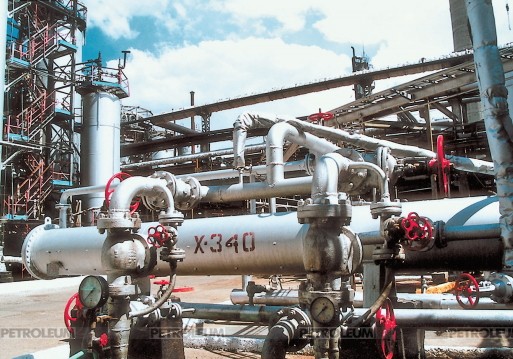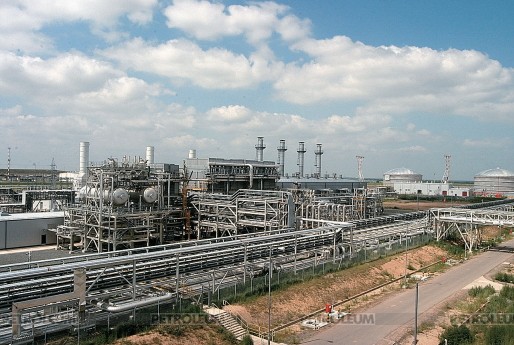Focus of the Issue: Russian Vector
Eurasian Economic Union. Risks and Opportunities for Kazakhstan
Dosym Satpayev, PhD, Director of the Risk Assessment Group, Co-founder of the Alliance of Analytical Organizations of KazakhstanAs expected, May 29, 2014 the Treaty on the establishment of the Eurasian Economic Community (EEC) will be signed in Astana, Kazakhstan. Meanwhile, during the meeting of the presidents of Russia, Kazakhstan and Belarus held in Minsk on April 29, there was a discussion of the preparations for the signing of the Treaty, which once again showed the hidden differences existing between the participants of the integration process. In particular, Belarus President Alexander Lukashenko hinted that a closer integration could be postponed for 10 years. Such statements were motivated by a dissatisfaction of the Belarusian party that Russia doesn’t hurry to create the common markets of gas, oil and petroleum products that would allow Minsk to receive the Russian and Kazakh raw materials at bargain prices.

In this regard, it is interesting to note that back in June 2012, the Russian Finance Ministry announced that Belarus is exporting the oil products under the guise of organic solvents to avoid paying the export duties to the Russian budget. What kind of trust there is between Moscow and Minsk in this case? This time the Belarus President said, inter alia: "Treaty has the certain clauses, on which the compromises were not achieved”. The oil and gas issue. Belarus is very interested in getting Russian and Kazakhstani hydrocarbons within the Union frameworks and on free of duty basis. The partners, especially Russia, don’t hurry to remove all the restrictions. In turn, Astana has the long-term discussions with Moscow on exporting its own gas to Europe. The issue remains unresolved.
From its part, the Board Chairman of the Eurasian Economic Commission, Victor Khristenko informed that the common oil and gas market of the Customs Union countries will function not later than by 2025, but already on 2016, the concept of the common market shall be approved by the Presidents of the participating states. As to the petroleum product taxes, from the point of view of the Russian side, it is still the subject of bilateral agreements that also did not please Minsk, which was expecting a rapid creation of a common commodities market.
Much discussion was about the location of the EEU supranational bodies, which are likely to be located in Moscow. In turn, Almaty may become the headquarters of the common EEU financial regulator by 2025. Besides, by this time, if not earlier, Russia will try again to return to the issue of introducing a single currency within the framework of the EEU, which now is opposed by Astana and Minsk, believing it would undermine their economic sovereignty.
In general, despite the formal unanimity on many of the issues, there is a feeling that all the participants are talking about different subjects on case of the CU and future EEU. Here comes the famous phrase of Charles de Gaulle: "Dream of united Europe is Utopia: you don't make an omelette with hard-boiled eggs”. Apparently, a similar problem exists in the CU, where Russia, Kazakhstan and Belarus initially had different objectives.
Moscow considers the CU formation and its further transformation to a closer integrated facility more as a geopolitical project, than economic one, which ensures its role of subregional powers. In this regard, it is quite interesting to remember the phrase of the Director of the Institute of Economics at the Russian Academy of Sciences named after R.S. Grinberg, which he shared during X Conference on Risk Management in Almaty. The Russian expert said that the Kremlin is pushing the integration as the geopolitics is more important than the economy in this case. At the same time, the creation of the CU and further formation of the EEU is also one of the mechanisms to retain the China's economic activity in Central Asia for Russia. Mikhail Khazin, President of Russian company NEOCON, quite candidly stated that the alternative to the Customs Union can be only an economic colonization of Russia and Kazakhstan by the Chinese. In addition, Moscow is worried by another player, Turkey, which actively promotes its project of Turkic Union, involving Kazakhstan, Azerbaijan and Kyrgyzstan.
As for Belarus, Mr.Lukashenko initially said that with EEU formation, he expects to resolve a number of controversial issues, resulting from the CU functioning, including those related to equal access to the pipelines and equal tariff for pumping the energy resources, including those from Kazakhstan. It should me mentioned that Lukashenko has already had a bad experience from the union with Russia. By the way, this is a good example, because the Union was a banal battle over the leadership role, and Lukashenko lost the fight in the first place, due to the heavy economic dependence on Russia.
In turn, the governing bodies of Kazakhstan don’t stop repeating publicly that the future EEU is merely an economic project, without any infringement of the political sovereignty. Although it should be clear that informally all these integration projects are part of building the foreign image of the head of Kazakhstan, who considers the Customs Union as own creature. Perhaps this has led to the haste in which the Republic rather lost than won from the commencement of the CU operations.
By the way, this is recognized by the representatives of the Kazakh elite. In particular, at the beginning of the year, one of the representatives of the Ministry of Economy and Budget Planning of the RoK, speaking about the weak preparation of the Kazakh negotiators during the signing of Treaty on CU establishment, mentioned that dut to the lack of time, as a result, "some issues were not addressed or were superficially addressed”. However, on the part of some representatives of the business community of the country there were the suggestions to analyse first the CU from the point of view of all the pros and cons, and then proceed with signing the Treaty on the EEU formation. Therefore, it was better to ensure the expertise of this Treaty not only by the National Chamber of Entrepreneurs of Kazakhstan, but also by the non-governmental organizations in the field of economic analysis and political analysis to identify all direct and indirect threats to the economic and political sovereignty of the Republic. By the way, some financiers, such as the head of the Analytical Department of «Halyk Finance», Sabit Khakimzhanov, in an interview mentioned a rather interesting experience of the Organization for Economic Cooperation and Development. Within this structure, as noted by the expert, there is a so-called "regulatory impact analysis”, which assesses the impact of any initiative and, most importantly, it analyzes any alternative solution to a problem that the proposed initiative should resolve.

In general, according to the economists, Kazakhstan within the framework of the CU continues to sell mostly the commodities to Russia and Belarus. Then the Republic uses the currency to purchase the finished products from them, some of which are also made of Kazakhstani raw materials: petroleum products, machinery and equipment, food products, metals, etc. It turns out that Kazakhstan, being the commodity supplier for the world economy, could turn into the supplier for the future Eurasian Union. One can agree with the Vice President of the Independent Association of Entrepreneurs of Kazakhstan, Timur Nazkhanov, who says: "Now we are exporting the raw materials to Russia and Belarus and we have done it before, without the Customs Union. Delivery of the goods from China have not decreased, but rather increased over the years. For an entrepreneur is still cheaper to import the goods from China than from Russia. We joined the CU without preparation, in terms of business or government regulations, standards, which have to be implemented in due course. As a result the business is suffering.



